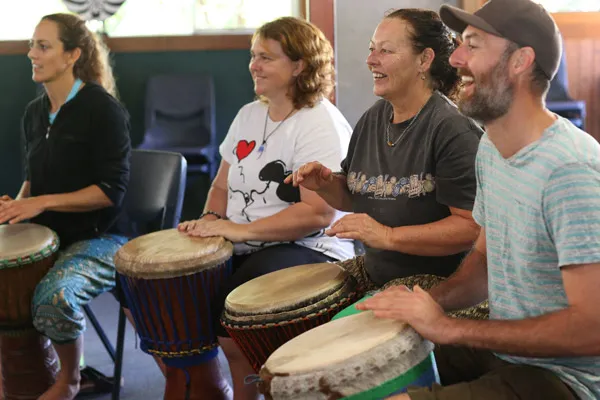
The allure of learning drums resonates with many in India, a land where rhythm is deeply ingrained in its cultural DNA. With the advent of online learning, aspiring drummers can now embark on their rhythmic journey from the comfort of their homes. However, mastering this exhilarating instrument requires more than just enthusiasm; it demands a well-structured and disciplined practice routine. In this blog post, we’ll unveil the secrets of effective drumming practice at home, offering insights and strategies to help you maximize your learning potential, whether you’re taking online drum lessons for beginners or simply looking to learn drums at home.
The Foundation of Drumming Excellence: Why Practice Matters
Before we delve into the art of practice, let’s understand why it’s the cornerstone of drumming mastery. Consistent practice:
- Builds Muscle Memory: Like any physical skill, drumming requires muscle memory to execute techniques smoothly and accurately. Regular practice reinforces these muscle memories, making your playing more fluid and effortless.
- Strengthens Neural Connections: Practicing drums creates new neural pathways in your brain, enhancing coordination, timing, and overall musicality. The more you practice, the stronger these connections become, leading to improved performance.
- Develops Technique and Precision: Practice allows you to refine your technique, ensuring that your strokes are accurate, consistent, and efficient. This is essential for playing complex rhythms and achieving a clean, professional sound.
- Improves Reading and Interpretation: For those learning through online drum lessons, practice helps you internalize musical notation, develop sight-reading skills, and interpret rhythmic patterns more effectively.
- Boosts Confidence: Regular practice builds confidence in your abilities, making you feel more comfortable and at ease behind the drum set.
Crafting Your Practice Routine: A Step-by-Step Guide

- Set Clear Goals: Define what you want to achieve with your practice sessions. Are you learning a new beat, mastering a specific technique, or preparing for a performance? Setting clear goals will help you stay focused and motivated.
- Warm-Up: Begin each practice session with a warm-up routine. This can include simple stretches, rudiments, and basic patterns to get your muscles warmed up and your mind focused.
- Focus on Fundamentals: Dedicate a portion of your practice time to mastering fundamental drumming techniques like grip, stroke types, and footwork. A strong foundation in these basics will make learning more complex rhythms and fills easier.
- Break Down Complex Patterns: If you’re working on a challenging piece, break it down into smaller sections. Practice each section slowly and gradually increase the tempo as you gain proficiency.
- Metronome Magic: Use a metronome to develop your sense of timing and rhythm. Start at a slow tempo and gradually increase it as you become more comfortable.
- Record Yourself: Recording your practice sessions can be a valuable tool for self-assessment. Listen back to your playing and identify areas that need improvement.
- Variety is Key: Avoid monotony by incorporating variety into your practice routine. Alternate between technical exercises, repertoire pieces, and improvisation. Explore different genres and styles to keep your practice sessions fresh and exciting.
- Take Breaks: Don’t try to cram everything into one long session. Take short breaks to rest your mind and body. This will help you stay focused and prevent fatigue.
- Be Patient and Persistent: Learning drums takes time and dedication. Don’t get discouraged by setbacks or plateaus. Be patient with yourself, celebrate small victories, and keep practicing consistently.
Online Drum Lessons for Beginners: Your Virtual Drum Guru
If you’re a beginner looking to learn drums at home, online drum lessons can be a great starting point. These courses offer structured learning, expert guidance, and interactive tools to help you develop a strong foundation in drumming.
When choosing online drum lessons for beginners, look for:
- Comprehensive Curriculum: A course that covers the fundamentals of drumming technique, rhythm, and music theory.
- Experienced Instructors: Instructors who are patient, supportive, and experienced in teaching beginners.
- Interactive Features: Platforms that offer live video lessons, feedback, and opportunities for interaction with other students.
- Practice Tools: Access to practice tools like metronomes, play-along tracks, and drum notation software.
With dedication, practice, and the right resources, you can master the art of drumming from the comfort of your own home. By following these tips and utilizing online drum lessons for beginners, you’ll be well on your way to becoming a confident and skilled drummer. Remember, the joy of drumming lies not just in the end result, but in the journey of learning and self-expression. So, embrace the rhythm, let loose, and enjoy the process!




